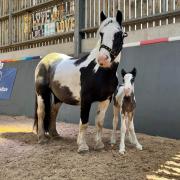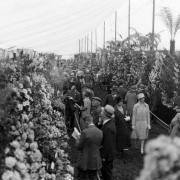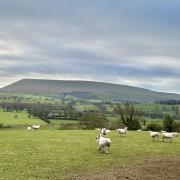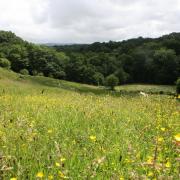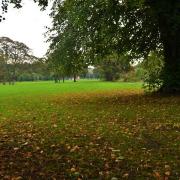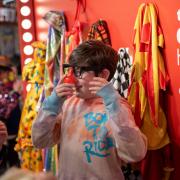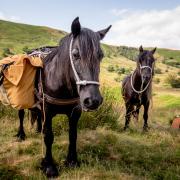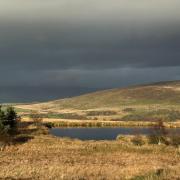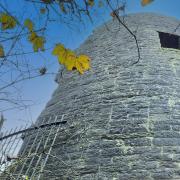Northern Broadsides pay homage to those who fought and those who fell as 2014 marks a century since the First World War began.
Set in an idyllic mill town in Lancashire, “An August Bank Holiday Lark” pays tribute to the Rushcart festival which had a resurgence in Saddleworth in 1975 and pays close attention to the community surrounding the festival and the lives they live. It does not dwell too much on the subject of war in the early parts of the story. What it does do is to bring a rustic realism of the simplistic ways of the people who were dedicated to the celebration, to Folk Dancing and, in some respects, to the ignorance of war. For many people the full extent of the atrocities were never really evident and little was known as to how vast the war would be.
The story focuses on the relationship of Mary Farrar (Emily Butterfield) and Frank Armitage (Darren Kuppan) of which they keep from Mary’s father, John Farrar (Barrie Rutter). It is a fact known to all in the village, except her father. Frank is part of the Greenmill Spinners, a folk dancing troop who showcase the celebration of the Rushcart with Mary’s father at the helm. When John Farrar becomes aware of Frank’s intent he forbids the pair to see each other and Frank decides to sign-up to fight in the war alongside Mary’s brothers Edward (Jack Quarton) and William (Ben Burman) in order to earn respect and win John’s blessing to wed Mary. During the first 48hrs leave, the pair get married before the lads are dispatched overseas to fight and the true realism of the war is born.
Deborah MacAndrews’ script is sublime covering every genre possible and incorporating historical fact paying tribute to her abilities as a writer. The script was lively, factual and hysterically funny at times. The flow of the story from the opening scene throughout the assorted dance routines and Rushcart festival spun nicely between each other in which the collaboration and past experience of working with Director Barrie Rutter blossomed.
The script cleverly starts off on a high and slowly cascades downwards towards the Final Act as the reality of War and the affects it has start to appear. The descending theme of the story plays out to an emotional finale with the sentiments ringing true. For every experience the actors portrayed have been felt by our own countrymen, our own relatives, our own people. It’s the realism of the situation and the truth about what has actually happened which adds incredible depth to this well written piece.
The biggest challenge for any writer is to incorporate a large amount of characters within a story and McAndrew excels in, not only bringing together a large ensemble, but to individualise them from each other with different feelings, emotions and mannerisms. The actors were able to absorb each other’s performances on stage allowing the audience to warm to them and to share their heartache and emotions which is vital towards the climax of the play. With such a strong cast it is difficult to single any performance out as they were, in their entirety, faultless. They brought natural belief to the storyline through the characters they were portraying. Barrie Rutter’s direction in maintaining a well layered script with smooth, pacey performances added to the overall presentation.
When I interviewed Deborah McAndrew about writing this play back in January I was fully aware of the time, care and attention that she had taken in researching the piece before even putting a story into it. She spoke of great fondness of a particular time and of a celebration that, for many of us was unheard of, but when the final curtain comes down we are left with inspiration and enthusiasm. For myself it was an enthusiasm to learn more of what our descendants did to protect our land. Of what the Rushcart festival was really about and to learn more about the history of the county that we live in and how life was sometimes simpler back then before the prospect of war.
A superb script, truly wonderful performances and a variety of talents were showcased encompassing this beautiful story that offered everything. The dedication, not only for the history of the story, but for the commitment to the content and the involvement of the Saddleworth Morris Men allowing the use of their Denshaw dance and their guidance throughout completed this truly magnificent piece and I was privileged to have opportunity to witness one of the finest pieces of theatre I have seen.
www.robgemmell.co.uk
@robgemmell1




